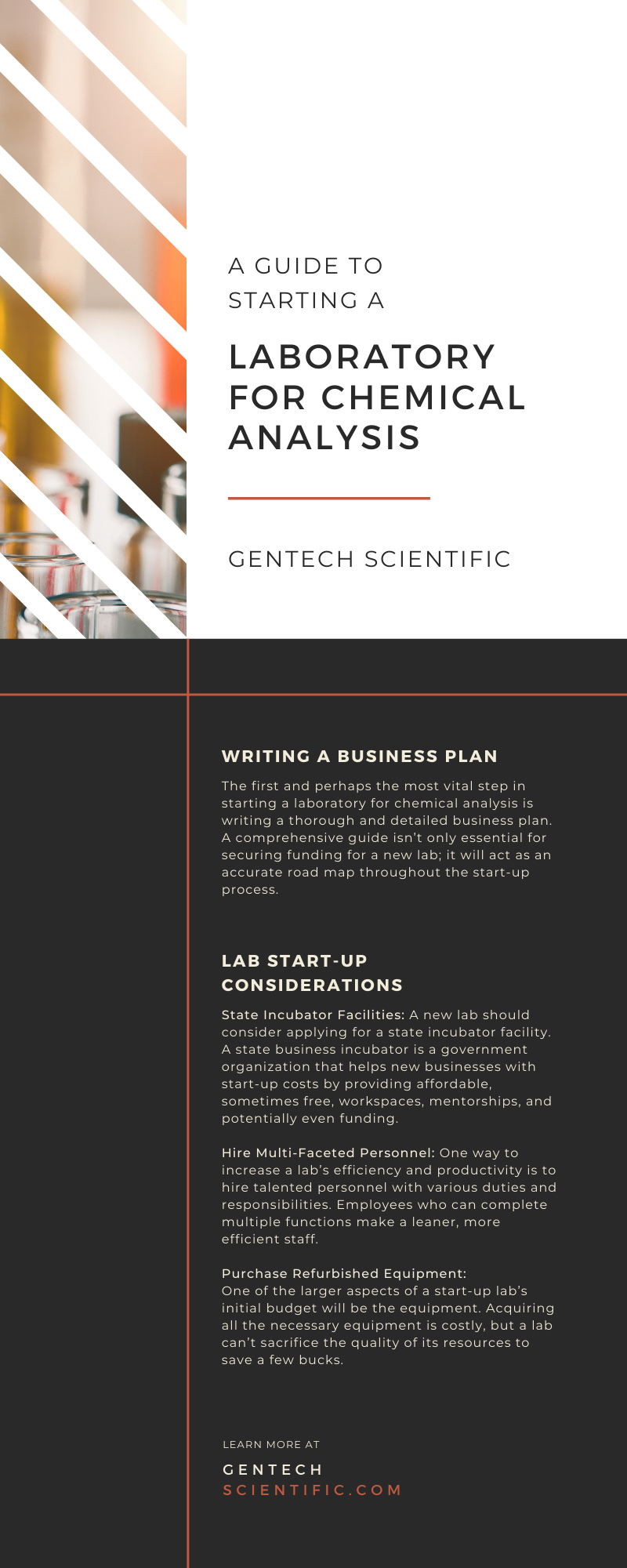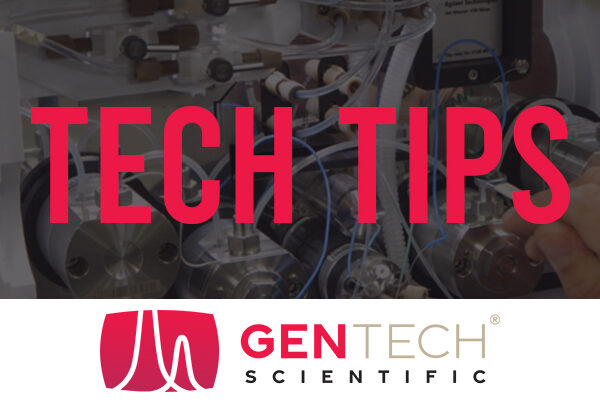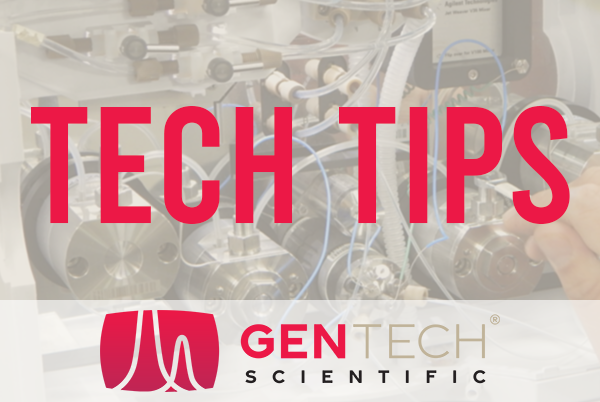If you’re considering starting a new laboratory for chemical analysis, you should know that starting a new lab isn’t just about science and research—but executing a detailed business plan.
Our guide will highlight what a new start-up lab needs, from the basics of a business plan to tips for cutting start-up budget costs.
Writing a Business Plan
The first and perhaps the most vital step in starting a laboratory for chemical analysis is writing a thorough and detailed business plan. A comprehensive guide isn’t only essential for securing funding for a new lab; it will act as an accurate road map throughout the start-up process.
For those unfamiliar with the business side of starting a laboratory, we can help by going through everything a quality business plan needs and what it entails for chemical labs.
What a Business Plan Needs:
Executive Summary
As one may guess, an executive summary is the brief highlights and crucial aspects of the business plan. Included are the strengths of the overall business plan, like what the chemical lab will analyze and its target market.
Readers of the executive summary should understand the lab’s target market and the problem it will solve for this market. Since it’s a summation of the overall plan, it’s typically best to complete this part last, when all research has been gathered and analyzed.
Company Description
After the executive summary, the business plan should include a brief company description. This aspect is still more of an overview, as the business plan will go deeper into services, organization, and marketing strategies later.
Essentially, the company description will answer the big questions about what the chemical analysis lab will do, what chemical analyses it will perform, and whether it is a business-to-business or business-to-consumer service provider.
Market Analysis
The market analysis is where the business plan gets into the fine details of the lab’s business strategy. This section should demonstrate the thorough research and market analysis that the author of the business plan has done.
The market analysis must thoroughly examine the industry and the competition the new chemical lab will face. Is there projected growth for the industry as a whole? What factors contribute to this evaluation? If there is estimated growth within the industry, how will this new chemical analysis lab capitalize on it?
Organization & Management
The business plan should also detail the organizational and legal details of the new chemical lab. This section should include an organizational structure and staff overview, along with a profile of management and necessary qualifications.
This section is also where the author should include details like intellectual property protection and other related legal issues. The author of the business plan should list some of the lab’s long-term goals, including potential staff expansion, with a rough timeline of how long this will take.
Sales Strategy
A lab could produce the best chemical analysis services in the world, but it won’t matter much if consumers and other businesses aren’t aware. Chemical labs must get the word out about their products and services. The sales strategy should detail how the lab plans to target its market, from digital marketing to printing leaflets and informational literature.
Most start-up labs will contract out these aspects of the business to a separate marketing team, but some will also include plans to bring these aspects in-house at a future date. Often, the success or failure of a chemical lab can come down to the achievements of its sales strategy, so this section is vital to success.
Funding Request
Last but certainly not least, the business plan must include some form of a funding request. Within this section, the author should distill all the research and information into dollars and cents with what it will cost to start the lab and the operational costs for the first five years.
The funding request should also include how the lab plans to acquire this funding—whether from government agencies, private foundations, investors, venture capital firms, or some other means of financing.
Research Available Grants
Perhaps the best funding opportunity for new chemical labs is securing a grant from a government agency or private organization. Securing grants is an excellent feat for a start-up chemical lab and can help attract other investors and funding.
Scientific start-ups can look for grants at government sites like grants.gov or research agencies such as:
- National Institutes of Health (NIH)
- National Science Foundation (NSF)
- Community of Science (COS)
- Department of Energy (DOE)
Lab Start-Up Considerations
Assuming that the business plan is successful and the chemical analysis lab gets the green light, it’s time to implement the plan. When starting a lab, the most crucial considerations are securing the proper lab space, hiring the right personnel, and securing adequate equipment.
We’ll offer useful tips for acquiring affordable lab space, an efficient staff, and low-cost but quality lab equipment.
State Incubator Facilities
A new lab should consider applying for a state incubator facility. A state business incubator is a government organization that helps new businesses with start-up costs by providing affordable, sometimes free, workspaces, mentorships, and potentially even funding.
It’s an excellent opportunity for new businesses, including chemical analysis labs, to get their footing. However, the application process can be long and rigorous, so it should be completed and sent in as soon as possible if that’s the lab owner’s intent.
Hire Multi-Faceted Personnel
One way to increase a lab’s efficiency and productivity is to hire talented personnel with various duties and responsibilities. Employees who can complete multiple functions make a leaner, more efficient staff.
A lab shouldn’t overburden its staff with responsibilities, but rather consider the benefits of personnel with various talents. It may mean offering higher wages and more benefits to attract talented individuals, but the long-term benefits of efficiency and growth are often worth it.
Purchase Refurbished Equipment
One of the larger aspects of a start-up lab’s initial budget will be the equipment. Acquiring all the necessary equipment is costly, but a lab can’t sacrifice the quality of its resources to save a few bucks.
One of the best options for new labs is utilizing refurbished lab equipment. Refurbished equipment is used but maintained, repaired, and sold to other labs at a discounted price. Used lab equipment is often just as productive and effective as brand-new paraphernalia at a fraction of the cost—which allows a start-up lab to focus financial resources on other aspects of the budget.
We hope you’ve learned the basics of chemical analysis labs and all the effort and resources required to start one. If your new lab could use some affordable but quality equipment, don’t hesitate to contact the experts at GenTech Scientific who can help outfit your new lab with the essential equipment it requires.








